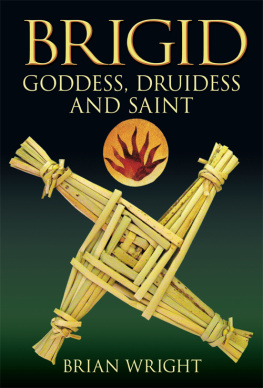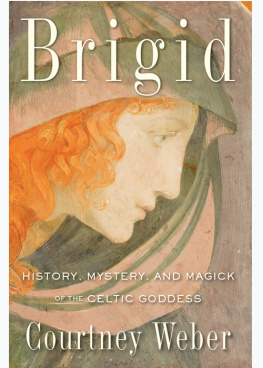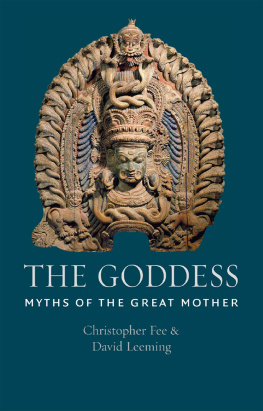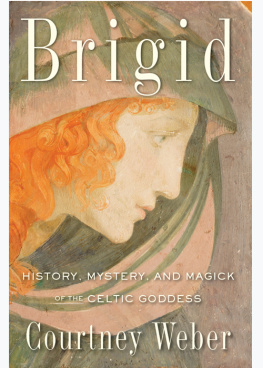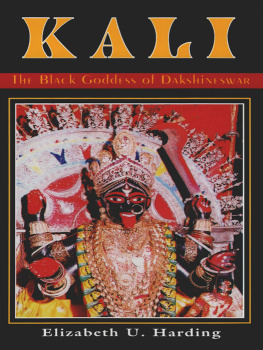BRIGANTIA: Goddess of the North
by
Sheena McGrath
Copyright 2015 by Sheena McGrath
All rights reserved. This book or any portion thereof may not be reproduced or used in any manner whatsoever without the express written permission of the publisher except for the use of brief quotations in a book review or scholarly journal.
First Printing: 2015
ISBN 978-1-312-91171-0 Boreal Publications
P. O. Box 42
Wabush, NL Canada A0R 1BO
Photos: Simon Ross.
Table of Contents
Introduction
Roman Evidence
The Inscriptions
The Seventh Inscription
Who was Bregans?
The Statue
Another image of Brigantia?
Celtic Background
The Brigantes: What we Know
Interpretatio Celtica
History: Tacitus and other sources
Queen and Goddess: Sovereignty
Tutelary Goddess
Celtic Minervae?
Conclusion
Glossary
Romans
Brigantes
Deities/Concepts
Bibliography
Introduction
Septimus Severus was among the very few Roman emperors to ever set foot in Britain. Considered the remotest, coldest and most godsforsaken part of the Empire, Britain was the outer limit. No doubt that if it hadnt been for insurrections and the memory of the Boudiccan uprising, the African-born emperor would have stayed in warmer climes. Two things drove him on, however. First, he had succeeded to the throne as a result of civil war, and among those he defeated was the then governor of Britain. The troops in Britain had backed their own man, and now Severus wanted to ensure their loyalty.
Second, Hadrians Wall was in bad shape by this time, and the Scottish tribes were making raids across the border. Things got so bad that the new governor of Britain appealed to Rome for an imperial force. He probably didnt expect the emperor to come in person, but Septimus came, with a formidable army gathered on his journey north, as well as his two sons. It was rumoured that he came partly to keep his sons busy, keeping them out of trouble and bad company.
One of Septmius most significant acts was to split Britain into two provinces, Britannia Inferior (Further Britain, the north) and Superior (Nearer Britain, the south). The legions were divided between them, so that the governors would not be able to mount a coup again. As part of this division, and because the imperial court had to be in the North while he campaigned in Scotland, Septimus established a base at the large civilian settlement at Eboracum (York). That was where he died in 211 CE, leaving his sons to fight over the throne until Caracalla had Geta murdered in December of that same year. (He also ordered Getas name erased from all public monuments. See Glossary.)
Septimus and his wife Julia Domna both came from the Roman province of North Africa, and even after their move to Rome they retained many of their old ways. The Emperor and his wife were chief priest and priestess for the whole empire, but the Severans had their own ideas about how they should go about their duties. Julia Domna, according to a story that may or may not be true, once appeared as the goddess Juno Caelestis and encouraged the troops to worship her as the goddess. This was exotic Eastern behaviour that Romans found very hard to tolerate, believing as they did that both gods and men should keep to their places. An area where the Severans were more successful in religious matters was in introducing some of their native deities. Among these were the North African goddess Tanit, or Dea Caelestis as the Romans called her, and the god Jupiter Dolichenus.
No one will be surprised to hear that when the Severans came to Britain, there were many ostentatious displays of loyalty to the regime from the locals and Roman officials. Altars inscribed with pious wishes for the health of the emperors family, and to the imperial divinities, were set up. Jupiter Dolichenus, whose cult had already spread from east to west, was at the zenith of his popularity and appeared everywhere. There were altars to both Dea Caelestis and Virgo Caelestis, to please the Empress. And a British goddess who until this time had gone unrecorded suddenly appeared in a flurry of altar inscriptions and statuary.
There are, in all, seven inscriptions mentioning the goddess Brigantia, three on altars in Yorkshire and three more along Hadrians Wall, as well as an inscribed statue found in Scotland. This may not seem like much, but it is in line with other popular deities such as Nodens, while some have to struggle by with just one or two (Ross: map p. 465). The most enigmatic of these is the statue of Brigantia found in Scotland, not far from the border. This image, which seems on the face of it to be the most explicit evidence, is the most mysterious of all.
Indeed, her very rise to prominence is mysterious. Why this goddess, why at this time? The answer seems to be that the Romans, for their own reasons, encouraged her cult. This would explain why her cult seems to have taken Roman form, with inscribed altars and a Romanised statue. The promotion of a deity from local to provincial protector was not unknown; the Romans had done the same in Noricum (Austria) with the goddess Noreia, and in North Africa with Tanit.
Obviously theres no smoking gun in the form of documents spelling out a Roman plan to co-opt Brigantia, but the facts seem to point to that conclusion. As soon as the emperor set up his court-away-from-Rome in York, there must have been a search for a local deity who could represent the area. After all, it was settled Roman policy to propitiate local deities so they wouldnt try to put a spoke in the wheel, as well as because it flattered local sensibilities and gave a sense of continuity to see the old deities honoured by the new government. The new province of Britannia Inferior, with its new governor and legions, needed its own emblems to legitimate it and give it a shape in peoples minds. Who better than the goddess who protected the area and had done so since time immemorial?
Severus was in Britain by 209, and the statue of Brigantia found in Scotland was probably made the next year. It is a composite, with attributes from several goddesses, mainly those favoured by the Severans. Therefore it probably was inspired by Roman propaganda. The sculptor was up to date with sophisticated Roman syncretisation, and managed to create a very elaborate piece of Greek-, Roman- and African-inspired imagery. The latter gives us some idea of how influential the religious ideas of the Severans were, and how strongly they shaped the Roman cult of Brigantia.
The six altars inscribed with dedications to Brigantia interpret her in Roman terms, not surprising since the altars were a Roman form of religion, usually commissioned to fulfil a vow or thank a deity for some favour. Two altars from the York area are dedicated to Brigantia Victoria, possibly from retired soldiers. Another two are possibly from native Britons, judging by their names, both to Dea Brigantia, the Goddess Brigantia. Then there are two very interesting ones from the area of Hadrians Wall: the first is dedicated to the Nymph Brigantia, and the other to Brigantia Caelestis, along with a Romano-Syrian god, Jupiter Dolichenus. These are all private dedications, which suggest that the cult of Brigantia was not just a soulless piece of propaganda, but resonated with the populace.
Or did it? All the datable inscriptions come from the Severan period, and there is no reason to think the others are much different. The image of Brigantia comes from this period as well; possibly form the period of Severuss visit. So what happened to the cult after that? Did Brigantia fall from favour as soon as the Severans withdrew? Or is it possible that Brigantia was merely a Roman invention, who served her purpose and disappeared?


